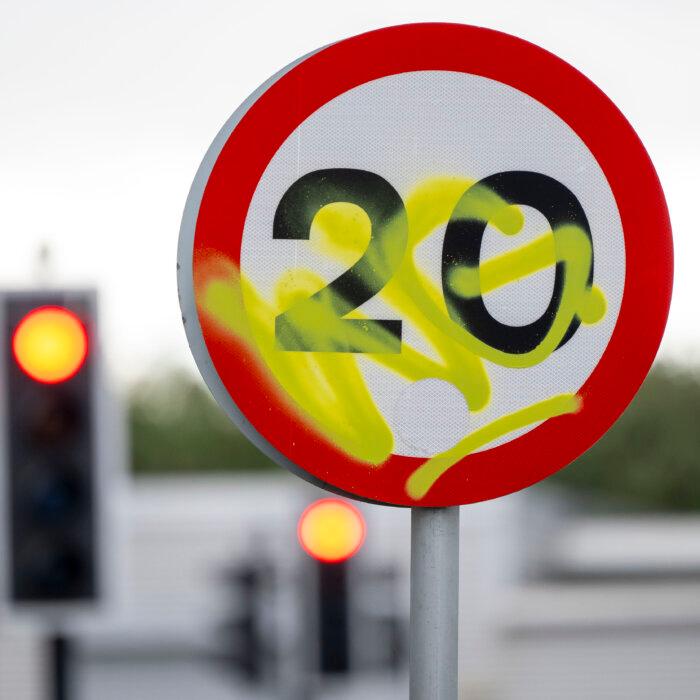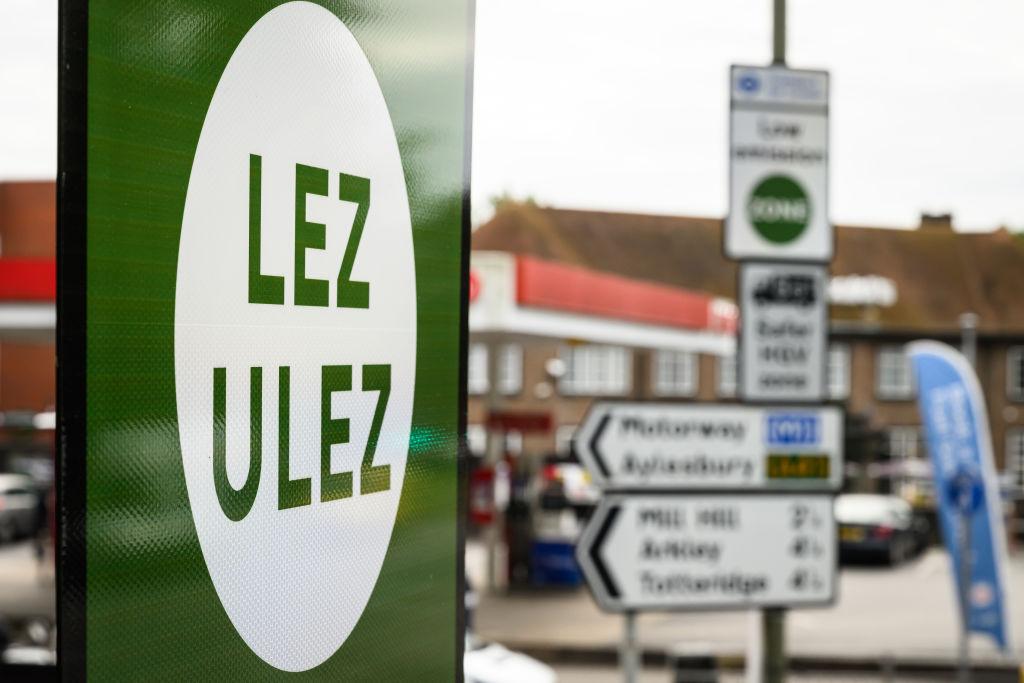London Mayor Sadiq Khan’s controversial 20mph speed limit came under spotlight on Wednesday as an index put the city on top of the world’s slowest traffic list for the second year in a row.
Drivers in the British capital took an average of 37 minutes and 20 seconds to travel a typical 10 km journey, ranking number one among 387 cities around the world, according to the latest TomTom Traffic Index.
It’s one minute more than what it took in 2022, nearly two minutes more than 2021, and almost nine minutes more than the time needed to travel the same distance in Dublin, which came in second in 2023.
TomTom also said London was the slowest city with or without traffic jams.
Stephanie Leonard, head of government and regulatory affairs at the Sat Nav company, singled out London’s 20mph speed limit on its major roads which was introduced in March 2020, saying the city doesn’t “have the infrastructure for driving very quickly.”
The mayor’s office and Transport in London (TfL) disputed the ranking, saying the index is misleading because it only focused on central London.
According to TomTom, at peak times, drivers in London who commute 10km spent an average one hour and 28 minutes in traffic each day, losing around 38 minutes in their return trips.
While London is the “slowest city in the world with traffic, it’s also the slowest city in the world when traffic is moving optimally (in free flow condition, when travel times are at their lowest, such as in the middle of the night),” TomTom said.
It takes around 25 minutes for drivers in London to drive 10km in optimal conditions, meaning traffic has cost drivers an average of over 12 minutes every 10km, the report said.
“London really is the slowest place in the world to drive a car,” Ms. Leonard said. “Especially in the core city centre, you don’t have maximum speed limits of 50mph or higher, it’s a maximum of 20mph.
“You don’t have the infrastructure for driving very quickly.”
Mr. Khan’s spokesperson claimed the study is “misleading” because “it only includes analysis from a very small part of the city centre, not the whole of London.
“Comprehensive TfL data suggests that journey times on the TfL road network actually remain at similar levels to those in 2019, while analysis from around the UK suggests that lower speed limits have not increased congestion,” they said.
“Roadworks are the biggest cause of congestion in cities, which is why the mayor’s infrastructure coordination service is working with boroughs and utility companies to reduce delays caused by roadworks, helping to save London road users over 1,250 days of roadworks since 2019.”
TfL’s director of network management and resilience Carl Eddleston said: “We disagree with this analysis of road speeds and believe it is not representative of London as a whole.
“This report only looks at data collected up to 5km from the centre, regardless of the city’s overall size and density, which means that fair comparisons with other cities cannot be made.”
Critics blamed the ranking on the mayor’s traffic-limiting policy.
Susan Hall, a Conservative mayoral candidate, said, “This is the consequence of Sadiq Khan’s war on motorists, which has gridlocked our roads and made London the worst city in the world to drive in.”
She pledged to “stop these blanket 20mph limits on main roads” if she wins May’s election.
Alan D Miller, co-founder of the civil liberty campaign group Together, told GB News such policies “suffocate and limit a city.”
“We’ve got councils that are doing cash grabs that are not providing services,” he said, referring to fines related to traffic violations.
“And, of course, some communities might say around this school, we might think 20 miles an hour is a good idea. The idea that you suffocate and limit a city to all being 20mph, to going back to speeds that are really a horse and cart is preposterous,” he said.
Mr. Miller also said that the UK’s democracy is being “hijacked to the local authorities and nationally by a few green billionaires underwriting campaigners such as UK100, we’ve got C40 Cities with Sadiq Khan who’s the Chair of it, what they’re doing is limiting any other challenges to these discussions,” he said.
The 20mph speed limit was imposed on the streets in the City of London in March 2020 as part of Mr. Khan’s “Vision Zero” initiative as the mayor vowed to to everything he could to “eradicate all deaths and serious injuries on London’s roads.”
The cap is currently under expansion to cover a further 40 miles.
The concept of “vision zero,” based on the philosophy that death and injury is never ethically unacceptable in a transport system and, therefore, safety can’t be balanced against other considerations, came from Sweden in the 1990s and has evolved into a global movement pushing for the goal.
The goal has been incorporated in policies in multiple local authorities in North America and Europe, including the UK’s Lancashire, Brighton and Hove, Bristol, Edinburgh, and London.
Other traffic-limiting ideas and policies, wholly or partly related to net-zero climate drives, have also been promoted among decision makers in global networks such as the World Economic Forum and the C40 Cities, a global network of mayors, often irking local electorates.







